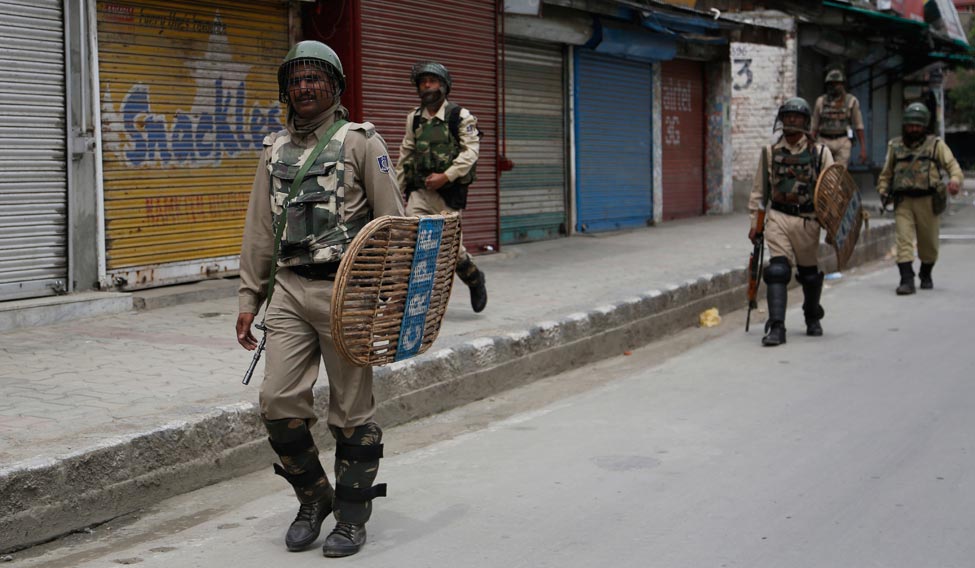Home Minister Rajnath Singh's statement on Sunday that Modi government will find a permanent solution to the Kashmir problem is centered on isolating the Hurriyat Conference, launching of more kinetic operations against militants and their overground workers, and involving '"stakeholders" to counter the growing separatist buzz in Kashmir, The Week has learned.
The government also has decided to use more fire power on the Line of Control to counter infiltration and ceasefire violations.
Defence Minister Arun Jaitley recently told reporters in Srinagar that the government would act tough against militants and their supporters, but would adopt a citizen-friendly approach towards the common people.
The Centre, sources said, also plans to involve religious and ethnic minorities – shias, Gujjars, Paharis and other minorities – in Kashmir to counter the growing separatist's discourse in Kashmir.
Muhammad Yousuf Sofi, a BJP legislator in the upper house of J&K assembly said the Centre has decided to induct more local youth in the police force, paramilitary forces, and the Army.
He said the idea is to provide more employment to the youth in the state.
He said the government has so far employed 8,000 special police officers (SPO) and approval for another 2,000 is expected soon, he said.
Sofi said in a recent meeting of the J&K chapter of the BJP that was attended by party president Amit Shah and other ethnic and minorities were identified as stakeholders in the restoration of peace in Kashmir.
"The PMO will also provide monetary help to youth who wish to start their businesses," Sofi said.
The Centre has also directed the forces to launch more kinetic operations against the overground supporters of the militants.
On May 20, the body of Muhammad Yousuf Lone was recovered at Gudoora after the Army ended a search operation in Pulwama. Huge protests erupted against the killing with locals accusing the army of the killing. The police described the deceased was an "overground worker of Lashkar".
About 18 civilians, during a protest at the encounter sites, have been killed after the Army Chief Bipin Rawat warned the protesters disrupting operations against the militants will be treated as over ground workers of militants.
At a recent meeting of the officials of Home Ministry and Defence Ministry, a plan to wean away youth from separatism was discussed in detail, sources said.
The meeting stressed on the need to isolate the Hurriyat leaders. The NIA's probe against separatist leaders like Nayeem Khan, who was caught on tape admitting that separatists receive money from Pakistan to foment trouble in Kashmir, and others like Farooq Ahmed Dar alias Bita Karate is part of the plan to marginalise the separatists.
Sources said the meeting decided to squeeze the space for Syed Ali Shah Geelani, Mirwaiz Umar Farooq and Yasin Malik who have formed the Joint Resistance Movement after the killing of Hizbul Mujahideen commander Burhan Wani in July last year.
The Army and BSF have been given a free hand to deal with the infiltrators and ceasefire violations by Pakistan.
The state government has also taken steps to improve governance. Chief Minister Mehbooba Mufti recently made key changes in police with an aim to get a handle on the situation. She replaced IGP Javid Geelani with Muneer Khan who had made changes in postings to ensure results. The security forces are hoping the recurring protests by student and youth will subside in Ramazan that starts at the weekend.





